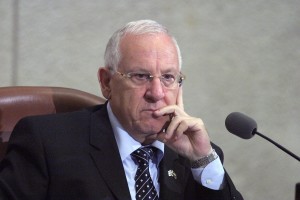by Mitchell Plitnick
The imbroglio over House Speaker John Boehner’s unseemly invitation to Israeli Prime Minister Benjamin Netanyahu after President Barack Obama’s State of the Union address last month is continuing to rage in Washington. But when it comes to the Palestinians, it is business as usual in Congress.
On February 4, the House of Representatives’ Sub-Committee on the Middle East and North Africa will hold a hearing on suspending aid to the Palestinian Authority as punishment for their temerity in exercising their legal right to bring their grievances against Israel to the International Criminal Court (ICC). The sub-committee, chaired by hawk Ileana Ros-Lehtinen (R-FL), has stacked the deck well against the Palestinians.
The panel appearing before the committee is a group of staunchly pro-Israel academics and think-tank pundits. It consists of Jonathan Schanzer of the neo-conservative Foundation for the Defense of Democracy; Danielle Pletka from the neo-conservative American Enterprise Institute; David Makovsky from the AIPAC-inspired Washington Institute for Near East Policy; and Eugene Kontorovich, a professor of law who is one of a tiny handful of legal scholars who try to make the case that Israel is not actually an occupying power in the West Bank according to international law.
The constitution of the panel is not surprising, given the hard push AIPAC has been giving on this issue, the rightward tilt of the sub-committee, and the Republican impetus to confound any moderation on Middle East issues by the Obama administration. In many ways, though, this is a grandstanding play by Congress. They have, after all, already passed legislation mandating that aid to the Palestinian Authority be suspended if it initiates or assists in a case that the ICC pursues against Israel. Now, with AIPAC cheering hard behind them, they are pushing it a step further and demanding that the Palestinians completely withdraw from the Rome Statute (the treaty that created the ICC).
Congress and the White House do not have a sharp disagreement on this issue, unlike the question of a nuclear deal with Iran. Both the White House and the State Department have publicly expressed their displeasure at the Palestinian decision to join the ICC, and the State Department has initiated its own review of aid to the Palestinians as a result.
Nonetheless, the Obama administration would clearly prefer to deal with this issue in a way that doesn’t cause further, perhaps fatal, damage to the Palestinian Authority. But whereas in the past both the Israeli government and its advocates in the United States have agreed that sustaining the PA was a priority, Jerusalem seems to have changed its position.
The hearing follows a letter, signed by prominent members of the House Committee on Foreign Affairs from both the Democratic and Republican parties. Addressed to Secretary of State John Kerry, the letter explicitly states that continued ICC membership would “threaten the viability of the PA itself.” It goes on to declare that the “United States should not support direct economic assistance to the PA until it demonstrates a meaningful reversal of this destructive course and proves it can be a willing partner for peace.”
Clearly, this Congress is determined to force the Palestinian Authority to abandon the ICC or it will destroy the PA entirely. This approach is not limited to the House. Last week 75 senators signed on to an AIPAC-authored letter spearheaded by Marco Rubio (R-FL) and Kirsten Gillibrand (D-NY) similarly urging harsh reprisals against the PA for its action.
Turning reality on its head, the Senate letter tells Kerry that “Israel needs a Palestinian partner that has renounced violence, refuses to partner with terrorists, accepts Israel’s right to exist as a Jewish state, and is willing to make compromises for peace. President Abbas’ recent actions undermine these efforts.” With the lone exception of Israel’s insistence that, unlike every other country in the world, the Palestinians, and the Palestinians alone, recognize it as a Jewish state, Abbas has gone to extraordinary lengths over the last decade to fulfill all of these demands.
These letters and hearings have come about under the shadow of the controversy over Netanyahu’s announced address to Congress in March. As such, they have received relatively little attention in Washington. But they represent a significant upgrade in the intensity of congressional action against the Palestinian Authority.
Neither the House nor the Senate letter makes any mention of urging Kerry to push for a resumption of negotiations, even though both note that this is, in the view of the signatories, the “only path” to resolving the conflict between the Israelis and Palestinians. Considering that the upcoming House panel doesn’t have a single voice on it that is anything less than hostile toward the Palestinians, the inescapable conclusion is that these congressional actions are, in fact, intended to strip the Palestinians of any means to defend their rights and claims in a non-violent fashion.
In March, whether Netanyahu addresses Congress or not, he will be coming to Washington. He will be coming with the clear purpose of scuttling the efforts of the Obama administration, as well as of the key European allies of Israel – Great Britain, France, and Germany—to reach a diplomatic resolution to the long nuclear standoff with Iran. A few days ago, Marsha Cohen and a team of experts ably deconstructed the likely substance of the case he will be bringing.
In light of those realities, the question that needs to be asked of both Netanyahu and the Obama administration is, quite simply, “why aren’t we talking about the Palestinians?” Instead of scuttling peace talks with Iran and blocking every non-violent route the Palestinians have to address their ongoing occupation and dispossession, would we not do better to seek peaceful and reasonable resolutions to both? Or is that just too much to ask of the United States?
Photo of Ileana Ros-Lehtinen (R-FL) and John Boehner (R-OH)






I only read the 1st paragraph, but this proves that US government speaks with Fork Tongues!
What are the Palestinians supposed to do? The Israelis seem to be able to do what ever they want, but snivel & whine about the Palestinians not cow towing to what Israel wants, along with the stooges in the U.S. Congress. Time to set Israel adrift on its own, or else hold them to practicing what they preach.
Can you find a place in this world where the US congress hasn’t been taking aim at?
In addition to the question, “why aren’t we talking about the Palestinians?” we need to ask “why aren’t we talking with the Palestinians?” and “why aren’t we listening to the Palestinians?”